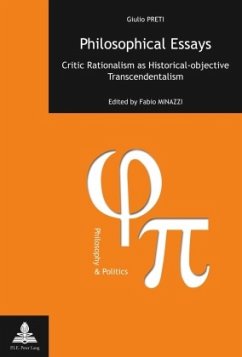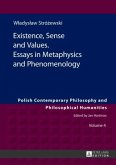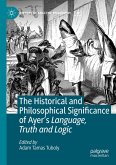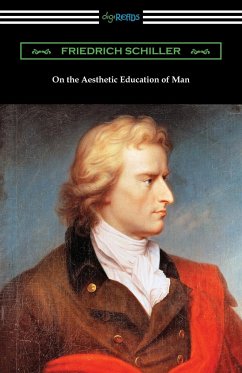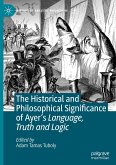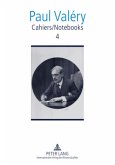These Philosophical Essays by Giulio Preti explore, with particular acuteness and originality, some of the major problems addressed by contemporary philosophy. Preti's objective was to outline a «scientific» philosophy capable of embodying the rigour and concern for the factual found in scientific procedure.
His analysis engaged with the complex tradition of logical empiricism and he also devoted attention to pragmatism and the philosophy of praxis in early Marx. Preti succeeded in establishing a dialogue with these traditions of thought while also considering both Husserl's early phenomenology and the methodical approach derived from Kantian and neo-Kantian transcendentalism.
He used this wide range of theoretical and practical horizons in innovative ways, presenting a critical metareflection receptive to these varying positions. In doing so Preti developed a new critical rationalism that incorporated a historical-objective transcendentalism.
His analysis engaged with the complex tradition of logical empiricism and he also devoted attention to pragmatism and the philosophy of praxis in early Marx. Preti succeeded in establishing a dialogue with these traditions of thought while also considering both Husserl's early phenomenology and the methodical approach derived from Kantian and neo-Kantian transcendentalism.
He used this wide range of theoretical and practical horizons in innovative ways, presenting a critical metareflection receptive to these varying positions. In doing so Preti developed a new critical rationalism that incorporated a historical-objective transcendentalism.

